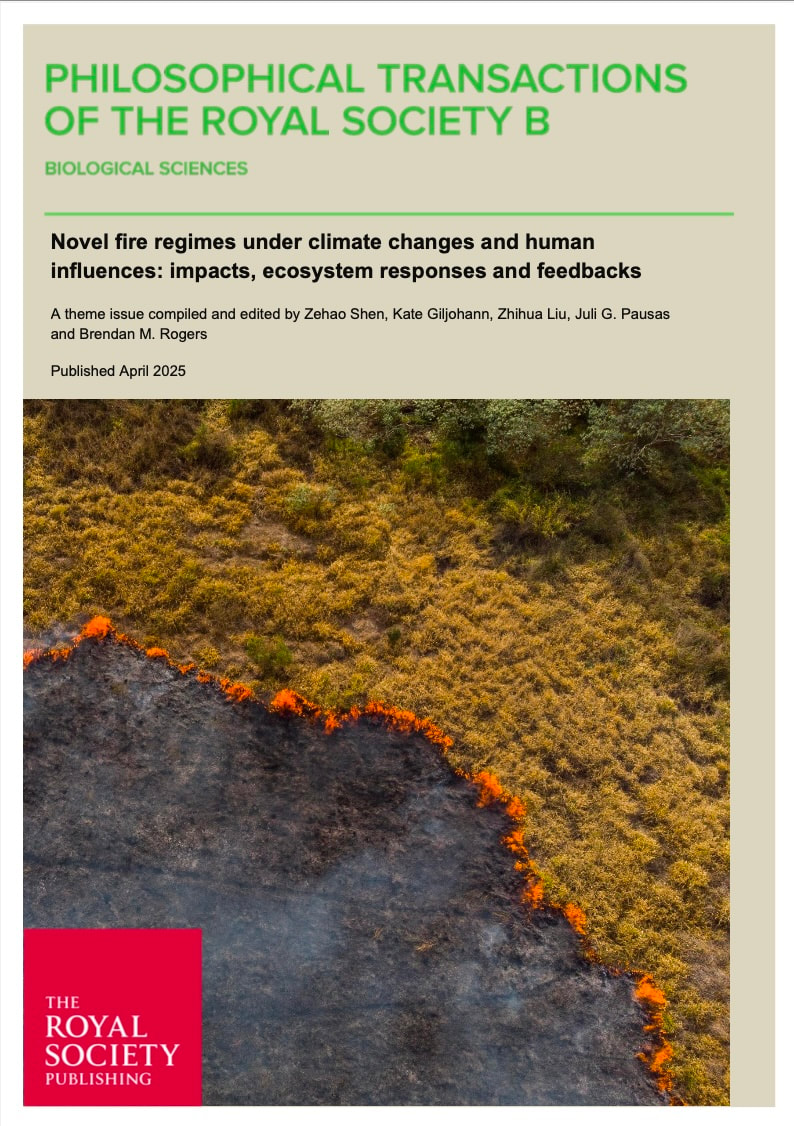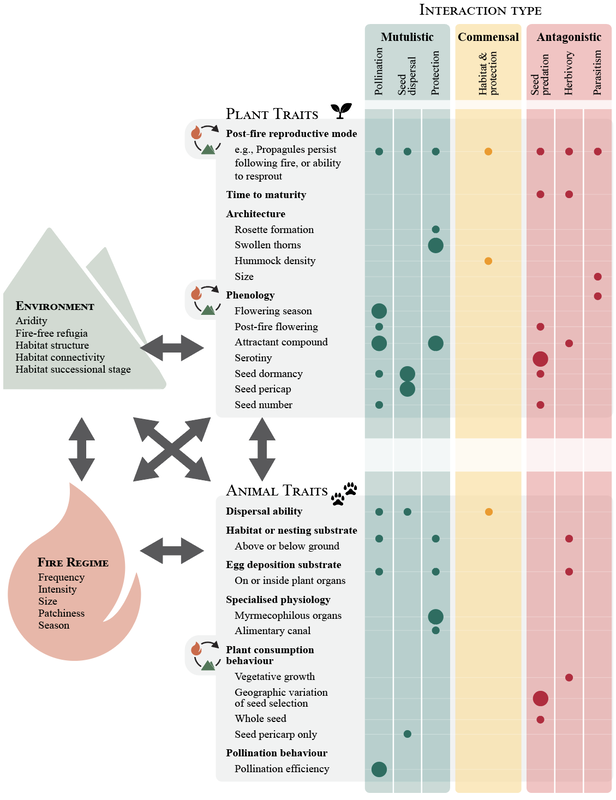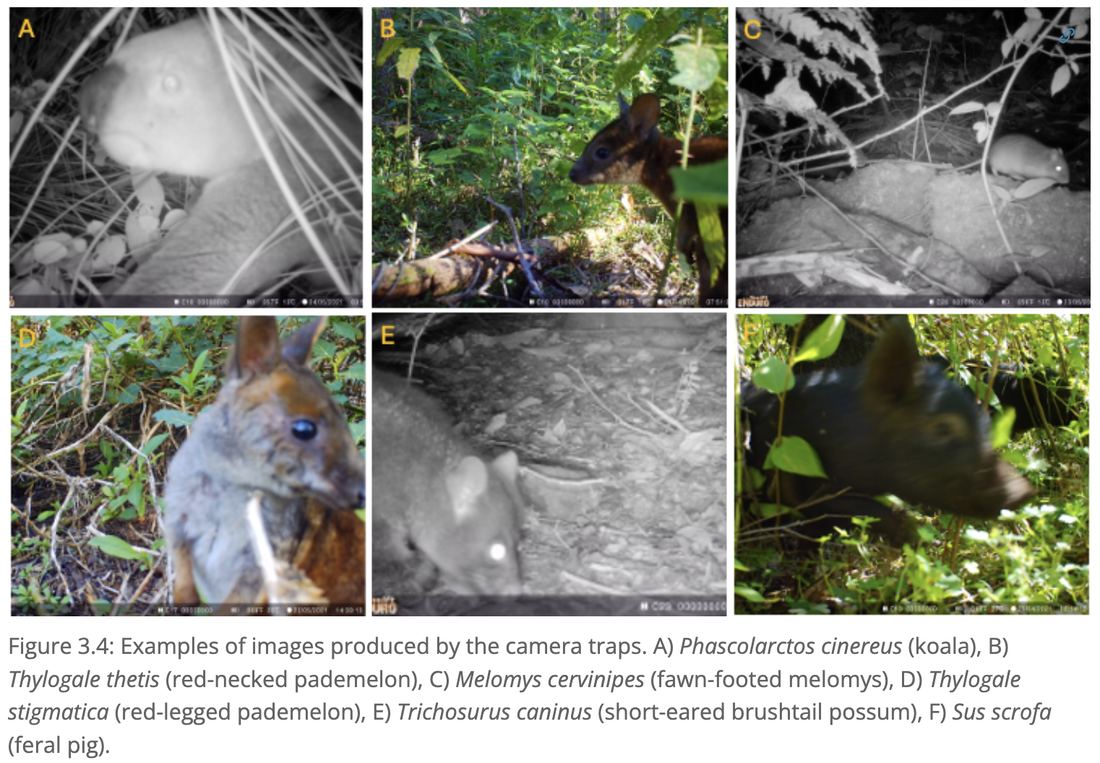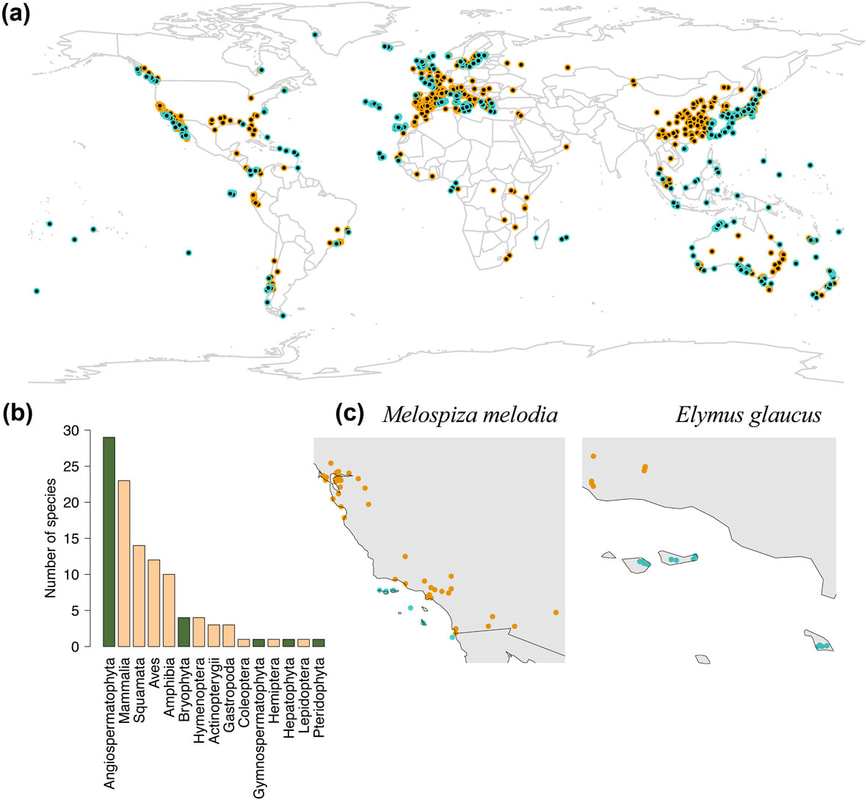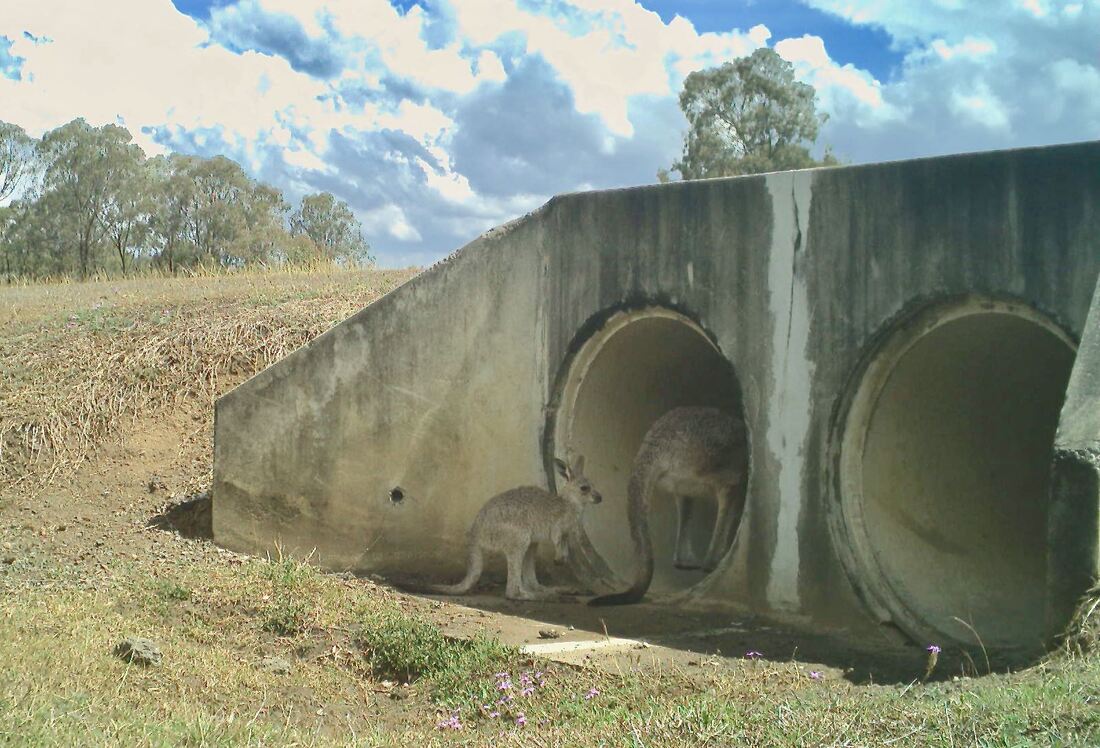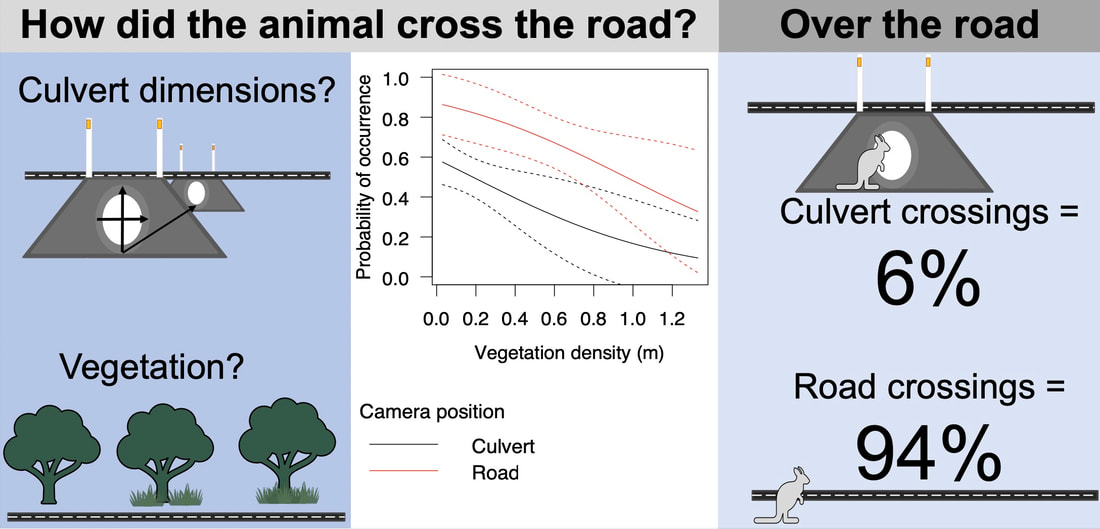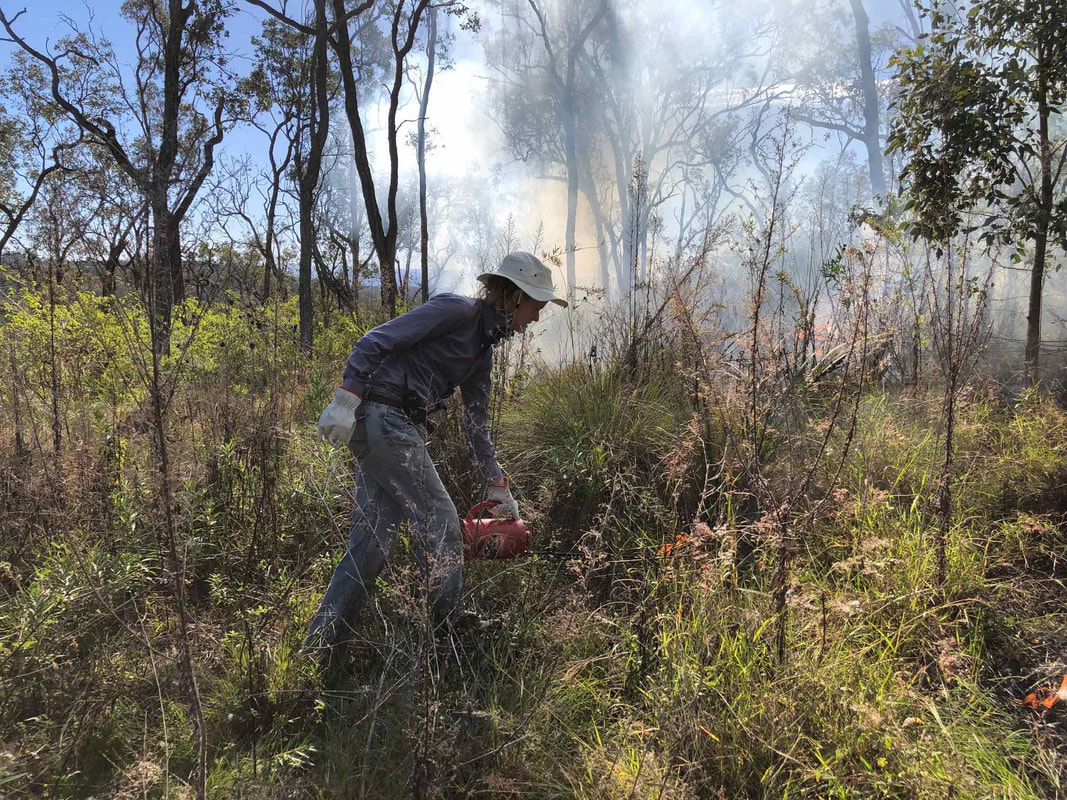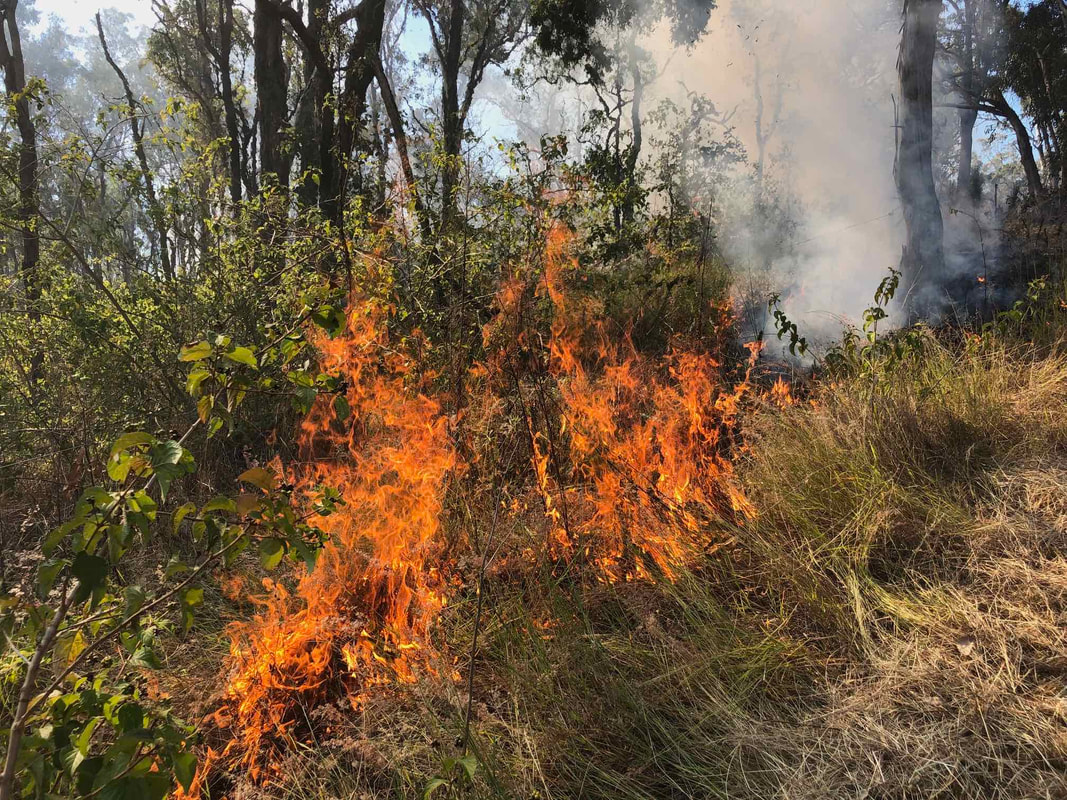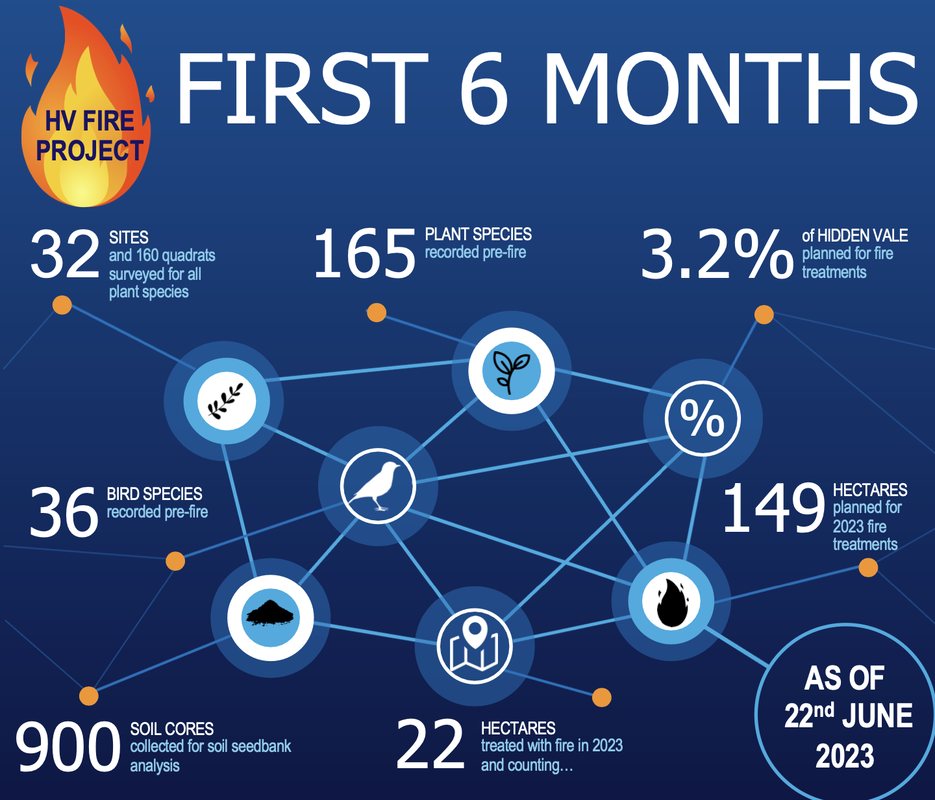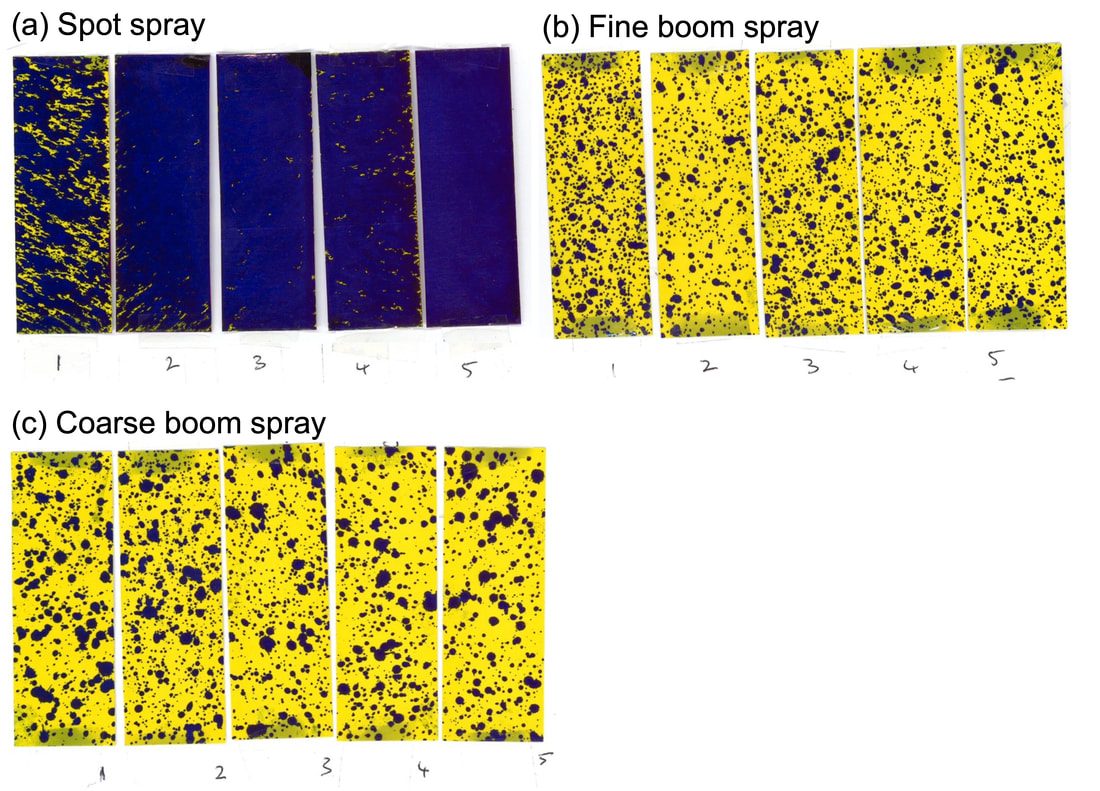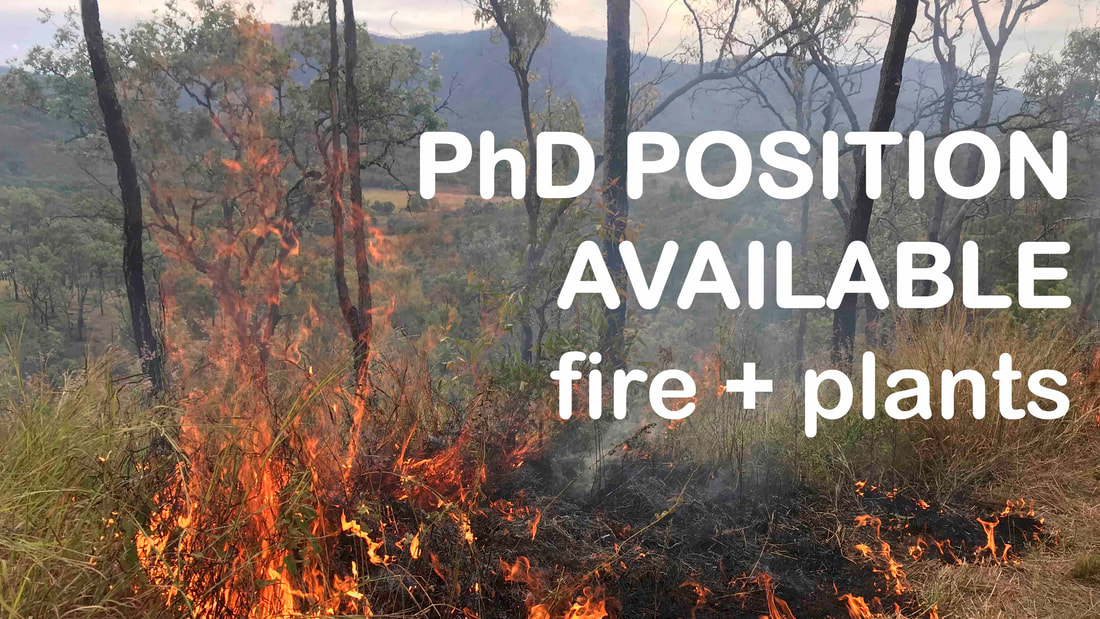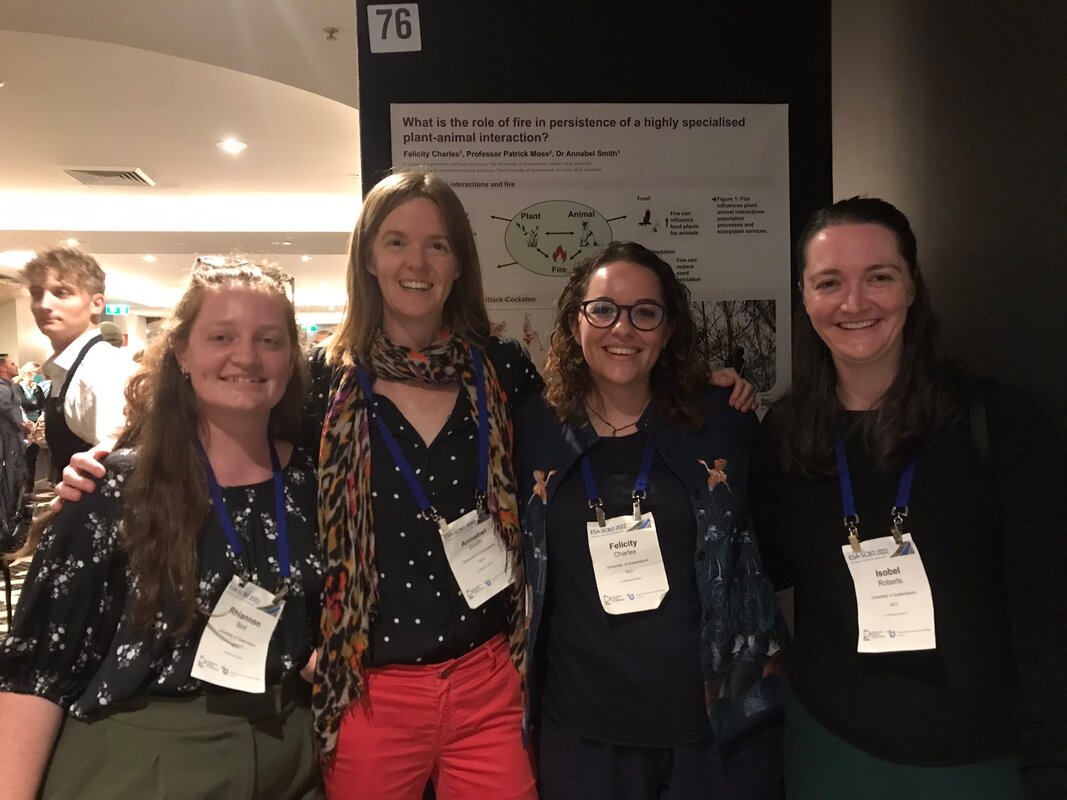A new paper by Smith Lab PhD Student Felicity Charles, synthesised the literature to show how fire regime changes impact fire-dependent specialist plant–animal interactions and potentially drive eco-evolutionary dynamics. Felicity identified mutualistic (pollination, seed dispersal and food provision), commensal (habitat provision) and antagonistic (seed predation, herbivory and parasitism) plant–animal interactions and summarised the traits involved in these interactions.
This work is a step-forward in understanding how traits interact across species and fire regimes and will help guide future fire ecology research.
This article is part of the theme issue ‘Novel fire regimes under climate changes and human influences: impacts, ecosystem responses and feedbacks’. This theme issue highlights the unprecedented importance of transdisciplinary research and adaptive management to address escalating fire risks in a changing climate.
